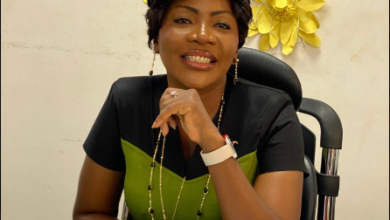
|
Getting your Trinity Audio player ready...
|
Seventeen-year-old Folake woke up one morning to her body exhibiting unfamiliar symptoms. Expected of a teenager, she panicked but could not gather enough confidence to ask questions.
Raised a conservative girl child, speaking to her parents about the symptoms was not an option, she had just begun her menstrual period and thought the signs could be part of the period ordeal package. The story changed one day; she mustered the courage to speak about it to her mother, but she was met with the expectation, and it was waved off. It’s nothing serious, and that was the end. She never spoke about it again. Not to her mother, not to anybody else.
“I had just started my period around that time, but my mom didn’t give me proper guidance or education about menstrual hygiene or sexual health, I think due to the African mother thing.”
Living with the symptoms and the effects became her new reality. Fearing it was some kidney disease, she resorted to taking herbs, the one ‘which flushes the system,’ until one day, she made the swipe that saved her. She randomly came across a TikTok post explaining what a Urinary Tract Infection (UTI) is, and that was when it dawned on her that she had had a UTI for years and it remained untreated.
“It was later that I stumbled on a TikTok post explaining what a UTI was, the symptoms, and how to treat it properly. That was my first real exposure to SRH information online, she said. “From there, I began using social media and Google more often to understand my body and health better.”
Like Folake, many young Nigerian women are turning to digital platforms because parental silence, school curricula and health systems often fall short. Enveloped with silence and conversations that sound like whispers, sexual and reproductive health and rights education struggles to make it to the frontline of local and national discussions. Discussions surrounding sex and reproduction are considered taboo, sacred and irresponsible.
The situation is not so different for Hauwa, a 19-year-old Nigerian girl who experienced frequent urination, heavy vagina discharge at a young age and had no one to turn to except her phone, after she got into the university. Discouraged by the possibility of long queues at the hospitals and likely stigmatisation, she stuck with her mobile device and got a ‘gynaecologist,’ YouTube. She conducts internet searches, and when confronted with an absurd diagnosis, upon noting her symptoms, she moved to YouTube. She thinks the Indian content creators there make sexual health topics easier to understand as they use simple and relatable terms, making it easy to self-diagnose and medicate. But for curiosity, Hauwa would have tampered with her reproductive health by following instructions provided by uncertified sex educators on social media. She got saved by the sheer luck of doing more research, borne out of fear.
“Sometimes when I go to YouTube, those Indian content creators, when making their videos, they make it so vivid and very realistic, which seems to be what one might be looking for.”
17-year-old Agatha experienced heavy menstrual bleeding that lasted for about four months. When she informed her mother, instead of receiving medical care, she was told to visit a prayer mountain, as the issue was diagnosed as a ‘spiritual problem,’ like the biblical story of the woman with the issue of blood. She was denied appropriate healthcare simply because her family did not consider sexual and reproductive health a legitimate medical issue.
Few schools that carry out sex education do not provide comprehensive sessions, using the abstinence-only approach. Lack of right and comprehensive sexual education and knowledge of reproductive rights have contributed to teen pregnancy.
According to the Nigeria Demographic and Health Survey, in 2018, the NDHS found that more than 57% of women had their first sexual encounter before 18.

About 23% of girls aged 15–19 have begun childbearing (i.e., are either pregnant or mothers). Approximately 400,000 unplanned births occur yearly, with half occurring among teenage girls aged 15–19.
A national coalition of leading youth organisations in the country led the development of the Family Life and HIV Education curriculum by the Nigerian Educational Research and Development Council. At its 48th session in 2001, the National Council on Education formally approved a sexuality education curriculum for Nigerian schools. The curriculum was developed in 2003 by the Nigerian Educational Research and Development Council through a participatory and consultative process that involved non-governmental organisations from all regions in the country, as well as international agencies.
Developed as a response to the increasing rate of STIs and HIV infection rates in the country, particularly among young people, it, however, included information on contraception, sexual abuse, gender roles, female genital mutilation, sexual orientation, masturbation, and abortion, among other subjects. However, the curriculum was met with strong resistance from religious and conservative political sectors, resulting in the content of the curriculum being diluted to cover abstinence only. In addition, the title was changed from the ‘Sexuality Education Curriculum’ to ‘Family Life and HIV Education.’

The avoidance of sexual and reproductive health education by families and schools is therefore not simply negligence but a systemic issue rooted in cultural, religious, and generational attitudes. Unfortunately, this approach continues to put young people, especially girls, at risk of misinformation, sexually transmitted infections, and unsafe practices.
To bridge this gap, teenagers and young adults turn to the internet/social media, content creators for sex education.
Findings show that most internet topics searched by Nigerian women border on sex—how to use condoms, birth control methods, sexual abuse, and ‘first time’ questions.
What the Experts Say: Making Sense of Sex Education Online
Sexual and Reproductive Health and Rights (SRHR) advocates believe that social media has helped to bridge the gap by providing a platform for medical practitioners to create content and for women to share their experiences. According to Esther Alaribe, a SRHR advocate, social media has enabled women to learn about their bodies, identify with others who have similar experiences, and find communities where they can exchange ideas and advice.
“Social media has been instrumental in filling the gap created by traditional education and parenting when it comes to discussing women’s health, rights, and bodily autonomy.
“Growing up in a culture where conversations about the body are often stigmatised can leave women without a clear understanding of their own bodies and needs. This silence hinders their ability to communicate with partners, access proper healthcare, and recognise potential health issues and address it,” she said.
Anjola Oyelola, SRHR Youth Coordinator at HACEY Initiative, said social media has become a space where women can openly share their experiences, challenge harmful cultural norms, and advocate for their rights without fear of immediate silencing, especially with hashtags, campaigns, and online communities.
“Nigerian women are amplifying conversations around issues such as access to contraception, safe abortion, menstrual health, gender-based violence, and maternal care. These conversations, which were once considered taboo or confined to private spaces, are now gaining national and even global attention.
“Social media is playing a powerful role in filling the gap left by formal education and parents in providing young people with sexual and reproductive health (SRH) information. While education from schools and parents remains very important and irreplaceable, research shows that most young people in Nigeria today are actively engaged on digital platforms. These platforms have therefore become a primary source of information, including SRHR content.
“Unlike the silence from parents or the avoidance by schools, social media creates an open space for dialogue, learning, and awareness. With just hashtags, young people can discover wide-ranging resources, communities, and discussions on sexual health.”
Between Facts and Falsehoods: Navigating Misinformation in Digital Sex Education
Twenty-year-old Bolaji came across a TikTok post about a miracle herbal tea that could help with bloating caused by periods and PCOS.
It was so simple and looked real and never thought it could be fake. She bought the tea but what she experienced afterwards, was worse than her initial concerns.
“I ordered this tea and was expecting changes, but I didn’t see any. After a few weeks of taking the tea, I started having a serious stomach ache, severe diarrhoea and irregular menstrual cycle.
“I reached out to a friend and went to a pharmacy. I told them about the tea, and they explained that it was the ingredients that most likely caused the symptoms. I stopped the tea, and my body system was back to normal. I felt so stupid for believing a random video on TikTok without conducting research on it,” she recounted.
For many young Nigerian women, social media is the first place they turn to when they have questions about their bodies, sex, reproductive health and rights. However, the same spaces that provide comfort and community can also be a minefield of half-truths and outright myths. One viral post can spread dangerous ideas about contraception, fertility, or sexually transmitted infections—often faster than expert voices can correct them.
This mix of facts and falsehoods leaves young women caught in between: empowered by the access to knowledge but also exposed to the risks of misinformation that could harm their health and choices.
At the heart of it, the challenge is not whether young women should use social media for sexual health education—they already are. The real issue is how to make sure the information they find is accurate, safe, and empowering. How do young women separate harmful myths from reliable knowledge when their health is at stake? To unpack this, we turned to sex educators and health experts who work directly with young people.
Their insights reveal both the promise of digital platforms and the urgent need for safer, more structured ways to deliver sexual health education.
Elizabeth Adewale, a certified holistic sex educator, said reliable sex education content should be empowering, research-driven, and shame-free, not rooted in fear or sensationalism.
“Avoid sensational or fear-based content. A lot of people talk about sex online just to chase views or likes, but real sex education empowers rather than shames or scares women. Look for consistency and credibility. Follow educators who have been doing this for a while and have a track record of sharing accurate, helpful information.”
Esther Alaribe emphasises the need for thorough verification of SRHR content that is put out.
“To determine the reliability of this content, it’s essential to verify the credibility of the sources. Look for trusted organisations like UNICEF, WHO, and academic institutions that have conducted thorough research.
“This approach enables them to critically assess the information, identify reliable sources, and avoid misinformation,” she concluded.
Is total reliance on social media the new norm? A question that begs for answers.
Elizabeth does not believe social media can replace traditional sex education.
“Schools and parents should be the foundation for teaching young people accurate, comprehensive, and age-appropriate information. Social media is wide open with no control over what is factual and what is not, so it cannot provide the same structure or reliability that a well-designed curriculum can.
“I think the best approach is for formal education to lay the groundwork and for social media to complement it by making the information more accessible, relatable, and engaging for young people. The ideal future is where schools, parents, healthcare systems, and social media all work together to give young people the complete, accurate, and comprehensive sex education they deserve.”
Young women’s health can’t be left to hashtags alone
Reintroducing comprehensive sexual and reproductive health education in Nigerian schools is no longer a question of choice but of urgency. While social media offers young women a bridge to knowledge, it is a bridge riddled with cracks of misinformation and half-truths. Only structured, fact-based teaching in classrooms can provide the clarity and confidence they need to make informed decisions about their health and future.






This is such an eye-opening piece. I truly hope it inspires parents and caregivers to have more open and honest conversations with their daughters about se x. ual and reproductive health. Girls deserve accurate information, guidance, and safe spaces to navigate these issues confidently. A job welldone to the voices behind this article and to the voice of the women! Thank you for pushing this out! 🌸🤍